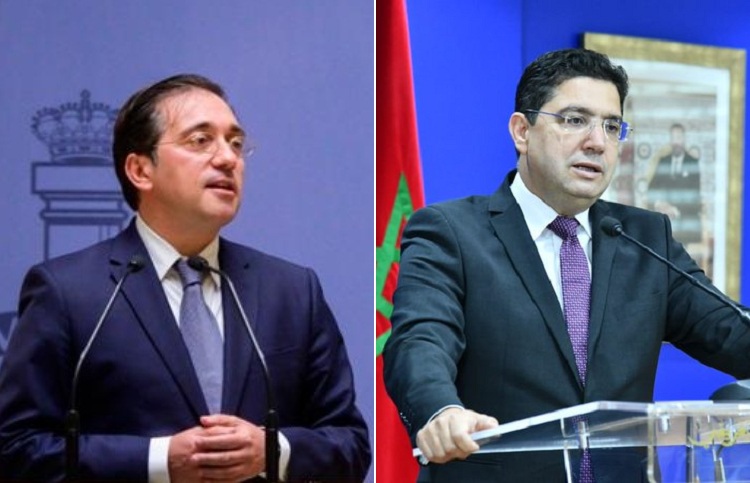Eduardo González
The Foreign Ministers of Spain and Morocco held yesterday their first conversation since the outbreak, five months ago, of the serious diplomatic crisis between the two countries as a result of the irregular entry into Spain of the leader of the Polisario Front, Brahim Ghali.
According to sources of the Ministry of Foreign Affairs, the head of the Spanish diplomacy, José Manuel Albares, held yesterday a telephone interview with his Moroccan counterpart, Nasser Bourita. During the conversation, the two ministers agreed to hold “a meeting in person soon”, since it has not been possible to do so within the framework of the UN Assembly, which the Moroccan minister has not attended.
The diplomatic crisis between Spain and Morocco, the most serious for many years, broke out on April 18 as a result of the irregular entry into Spain of Ghali, who was transferred from Zaragoza to a hospital in Logroño after contracting COVID-19. Rabat’s indignation resulted in a massive and uncontrolled entry of immigrants into Ceuta with the complicity of the Moroccan authorities, as well as a call for consultations of the Moroccan ambassador in Madrid and a whole series of public accusations against Spain.
Last July 12, José Manuel Albares assured, after taking office as the new Minister of Foreign Affairs, that one of the priorities of his mandate will be “to strengthen relations with our southern neighbors, especially with Morocco, our neighbor and friend to the south”. In the same act, his predecessor, Arancha González Laya, affirmed that one of the great challenges of the new Minister would be the “reestablishment of full relations with our neighbor and partner Morocco, based on respect and responsibility”.
Despite these words, González Laya did not take advantage of her coincidence with Bourita during the ministerial meeting of the Global Coalition against Daesh, held in Rome last June 28, to try to arrange a meeting or, at least, to arrange it at a later date. The crisis with Morocco did not play a leading role in Albares’ first months at the helm of the Ministry of Foreign Affairs either. At the end of July, the minister limited himself to declaring to the press, in relation to this issue, that “diplomacy requires calm, time and discretion”. “It is not a question of having strident headlines, but of strengthening the relationship between Spain and Morocco which, I am sure, also wants to have with us, a true strategic relationship of friendship”, he added.
The truth is that the tension has been slightly defused in recent months, especially after King Mohammed VI publicly announced the start of a reconciliation process to put an end to the crisis with Spain. One of the first elements which could be the first to stage the opening of this new stage of relations would be the return to Madrid of the Moroccan ambassador, Karima Benyaich, recalled for consultations after the Ghali case. However, some sources consider that the King could decide to ask for the approval of another person, given that Karima Benyaich maintained a position of great harshness towards Spain when the crisis occurred.
Another event that would give visibility to the Spanish-Moroccan reconciliation would be the possible visit to Rabat of José Manuel Albares, a visit that will still have to wait until a new government is formed in the Maghreb country. The recent Moroccan legislative elections gave the victory to the formations close to Mohamed VI to the detriment of the Islamist Justice and Development Party (PJD), a fall which, according to diplomatic sources, could influence the country’s foreign policy. However, the change of government would not necessarily imply a change of foreign minister, since the holders of this portfolio are chosen directly by the King.






